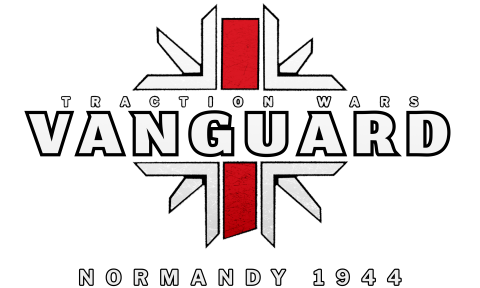Bro, do you even history.
The British army contributed 6 Armoured Divisions, 8 Infantry Divisions, an Airbourne Division, and several brigade sized armoured and specialist units. The Canada also contributed 1 Armoured Division, 1 Armoured Brigade, and 2 infantry Divisions. Also fighting alongside the British forces were 1 Polish Armoured Division, 1 French Armoured Division, and Free Belgian, Dutch, and Czechoslovakian Motorized Infantry Brigade each, along with the many airforce and naval assets. By comparison, the US Army had 4 Armoured, 13 Infantry, and 2 Airbourne divisions. Meaning, in total, the British and their Commonwealth/Free National allies contributed 9.5 Armoured divisions, 11.5 Infantry Divisions, and 1 Airbourne. Meaning slightly less infantry, but a much higher number of Armoured Divisions amoungst the British sector forces. Roughly half of all Allied forces in Normandy were British or Commonwealth.
In fact, the British were involved in far, far heavier fighting than the Americans in Normandy. They were facing a total of 7 Panzer Divisions, whilst we in the American sector faced two. This was simply due to German planning, Caen was the focal point of the German defense scheme in Normandy, which meant the British sector was far more important than the American sector, where they were willing to cede land for better defensive positions and time. The German defense in Normandy collapsed the way it did less because of Op Cobra (the German OKW had planned for that, and were going to use Caen as a pivot to swing their forces back to the Seine) and more because of Operation Luttich, Hitler's idea for an attach that would pincer off the American spearheads, which turned into a bloodbath as the Germans not only found that their tanks didn't change the fact that Bocage was a nightmare for tank combat, and which allowed the British to break out and form the Falaise Gap (which the Poles and the Canadians held closed, mind you).
In total, you argument is utter insanity. The British Army performed incredibly in Normandy, as well as Italy and Burma, where it scored one of the biggest victories of the war at Imphal and Kohima, in what was known as the Stalingrad of the Pacific. To say that the British were reduced to supporting roles in the land war is to be utterly incompetent in the history of the conflict.
For battles in the Normandy Campaign, I suggest you look into Operations Perch, Odon, Charnwood, Jupiter, Goodwood, Totalize, and Tractable, for the largest and most important tank battles of the campaign. The combat around Caen utterly dwarfed the Bocage sector in terms of tank combat. Wikipedia is a good start, but there are plenty of wonderful books on the battles as well, both the British debacles (Charnwood, Goodwood) and whooping successes (Totalize, Tractable).
EDIT: Just read your last post. You are correct that the Russians were the most important Allied contingent (though I use the term 'allied' loosely,' though you are quite incorrect in stating them as "not great defenders", considering the Russians did more than anyone else to stop the tide of the Wehrmacht, and stop it cold in it's tracks they did. Russia was also not 'well across Poland" when the ALLIES invaded Normandy. Operation Bagration did not kick off until July of 1944, and the first Russian troops did not enter Polish pre-war soil until later that month (though as far as the Soviets were concerned, that had been Soviet soil since 1939). Also, on you saying when "the American" invaded Normandy, I will remind you that a total of 4 American Infantry divisions and a ranger battalion were involved in the actual beach landings, compared to 2 British Infantry, 2 British Tank brigades, 1 Canadian Infantry Division and 1 tank brigade, and contingents of Free French and Commando units. In total, the numbers landed on the beaches were roughly equal.

